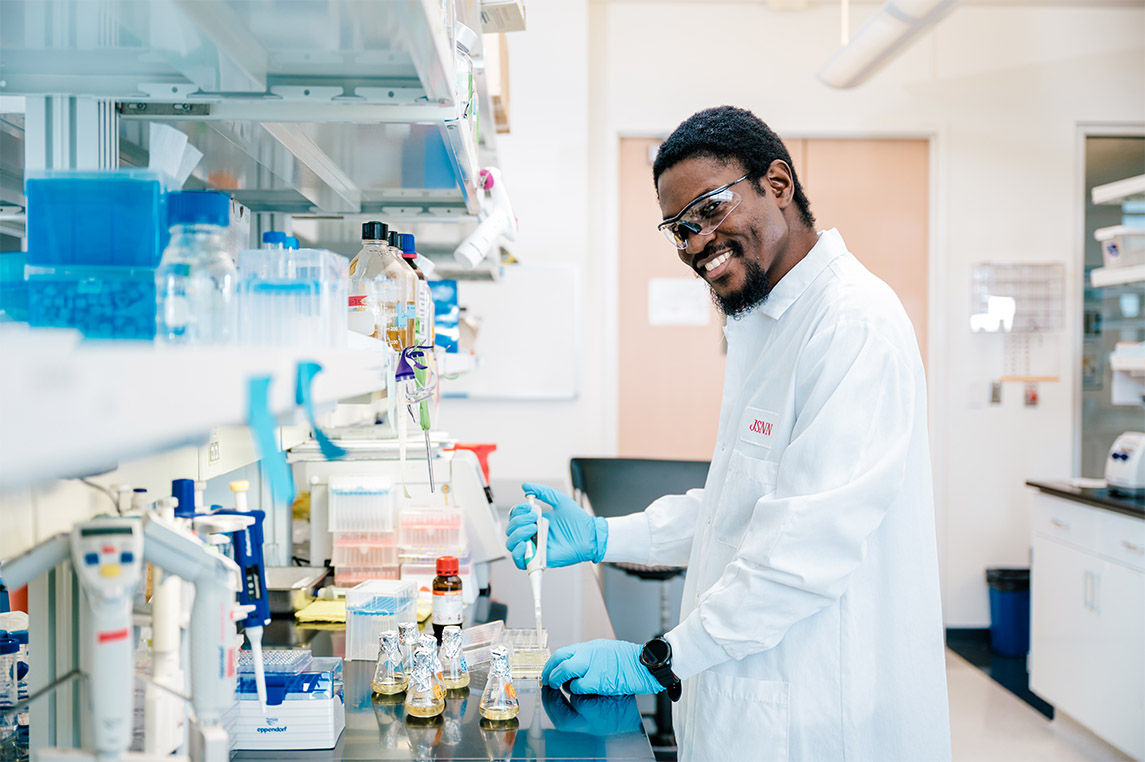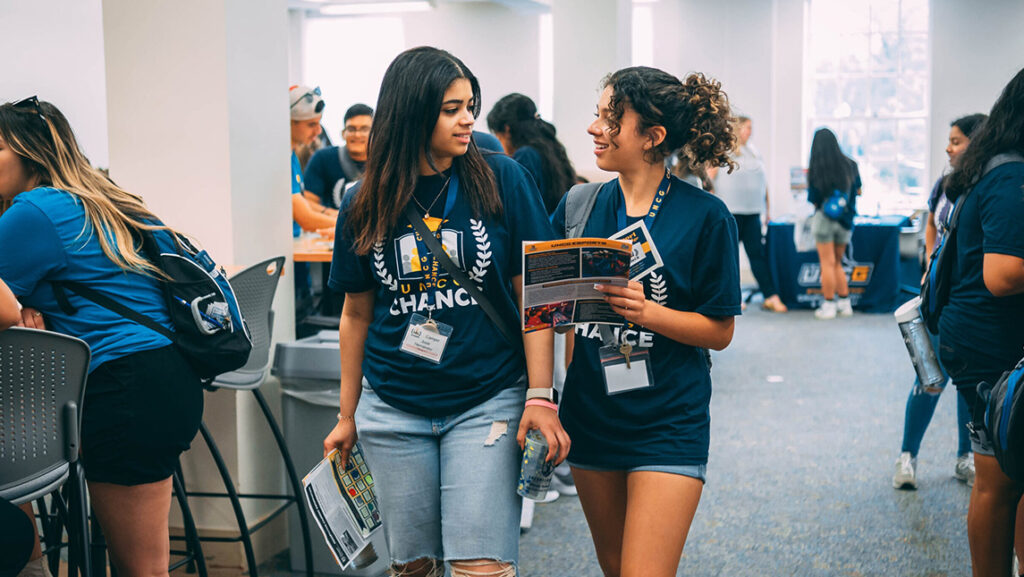A self-proclaimed “big nerd,” Theo Noussi is fascinated by nanoscience, which requires the use of sophisticated microscopy to study at a very small scale. “It’s amazing to study life and understand science at that level,” he says. “The field is interactive and interdisciplinary, incorporating biology, math, chemistry, and physics. We study mechanisms that revolve around life.”
Noussi, in his fifth year of a doctoral program in the Joint School of Nanoscience and Nanoengineering (JSNN) at UNCG, is a native of Cameroon and the youngest of eight children. He came to the United States six years ago to earn a master’s degree in earth science, with a specialization in environmental science, at North Carolina Central University.
“I chose UNCG not only for the learning opportunities it offers, but also for the environment that is strengthened by values of diversity and inclusion,” he says. “Anyone from any background can find a purpose here and grow, not only as a scholar but also as a conscious citizen of the world. That was very appealing to me.”
Noussi’s research, conducted in the nanogenomics lab, focuses on environmental remediation of nanoparticles and the reaction of bacteria to substances they encounter, such as antibiotics. “I call it the ‘psychology of bacteria’,” he says. “How do bacteria react when confronted with nanomaterial? I essentially say, ‘tell me how you feel,’ and they answer through the molecules they produce.” In the case of antibiotics, they “try to fight back, they don’t want to die. They use a sophisticated internal framework to fight the aggression of antibiotics.” A deeper understanding of this phenomenon, he says, could lead to changes in how we use antibiotics.
Nanoscience has many applications. A few that he mentions are semiconductor fabrication and the creation of microchips; diagnosis of diseases; drug delivery; and the efficient capture of solar energy to be converted into electricity. He especially enjoys opportunities for collaboration with fellow students in the field. “Nanoscience can help in real-life sectors, and that’s what makes it so exciting.”
After graduation, Noussi hopes to work for a biotech company and eventually for an agency such as the National Science Foundation or the National Institutes of Health. He wants to continue collaborative research, his “favorite thing to do.”
He feels at home now in the U.S., thanks to the “family” he has found in Greensboro. “When I first came to the U.S., the culture shock was prevalent. The adjustment was tough. But I am grateful to have found people here who give me an incredible level of support.”
Outside the lab, Theo has served as an international ambassador for students coming to UNCG from other countries. He’s “had a blast” doing it. “I have been there, and I’m helping someone who is getting started.”
He also finds ways to further embrace his “nerdy side” through video games, Comic Con and GalaxyCon, activities that he shares with friends, as well as ice skating, climbing and hanging out in the park. “Because of my friends,” he says, “I haven’t been homesick at all.”
Story by Mary Daily, for Manning Words, Inc.
Photography by Sean Norona



